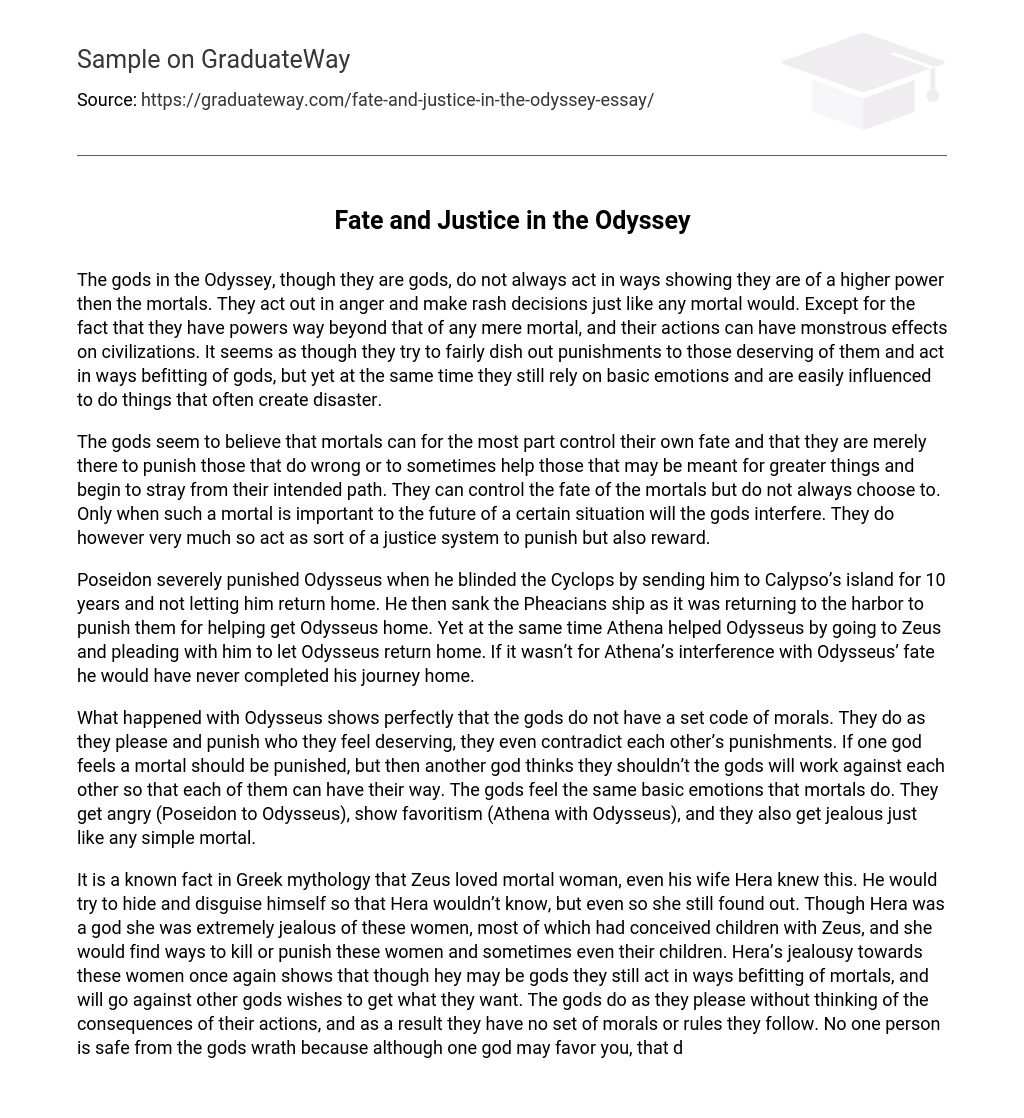Despite being gods, the deities in the Odyssey do not consistently demonstrate their superiority over mortals. They exhibit anger and impulsive behavior similar to any ordinary individual. However, their abilities surpass those of mere humans, and their actions can have immense consequences on societies. Although they strive to administer just punishments to the deserving and behave in a manner befitting of godhood, they still depend on primal emotions and are susceptible to manipulation, which often leads to catastrophic outcomes.
The gods appear to trust in mortals’ ability to control their destiny, believing that they are primarily responsible for shaping their own fate. The gods’ role is mainly to punish wrongdoers or assist individuals who may have a greater purpose but have veered from their intended path. While they have the power to manipulate mortals’ destiny, they exercise this intervention selectively. It is only when a mortal’s involvement is crucial to a particular situation’s future that the gods choose to interfere. Nevertheless, they notably serve as a justice system, offering both punishment and reward.
In spite of blinding the Cyclops and punishing the Phaecians for helping him, Poseidon also punished Odysseus by sending him to Calypso’s island for ten years. However, Athena stepped in and pleaded with Zeus to let Odysseus return home safely. Without Athena’s help, Odysseus would not have been able to successfully finish his difficult journey back home.
Odysseus’s experience reveals the absence of a consistent moral code among the gods. The deities act based on their personal desires and administer punishments to those they deem deserving, even if these penalties contradict each other. When one god believes that a mortal should face consequences while another disagrees, they oppose each other to assert their own will. Furthermore, the gods share similar fundamental emotions as humans do. They can become enraged (as exemplified by Poseidon’s anger towards Odysseus), display favoritism (like Athena does with Odysseus), and also experience jealousy akin to any ordinary mortal.
It is a well-known fact in Greek mythology that Zeus loved mortal women, and even his wife Hera was aware of this. Zeus would try to conceal and transform himself in order to keep Hera from discovering his affairs, but she always managed to find out. Despite being a goddess, Hera was extremely envious of these women, many of whom had children with Zeus, and she would find ways to harm or punish them and occasionally even their offspring. This jealousy exhibited by Hera towards these women once again demonstrates that, despite being gods, they still behave in ways similar to humans, disregarding the desires of other gods to fulfill their own. The gods act without considering the consequences of their actions, resulting in a lack of any moral code or rules they abide by. No individual is immune to the rage of the gods, as even if one god favors you, it does not prevent the others from punishing you if they so desire.





